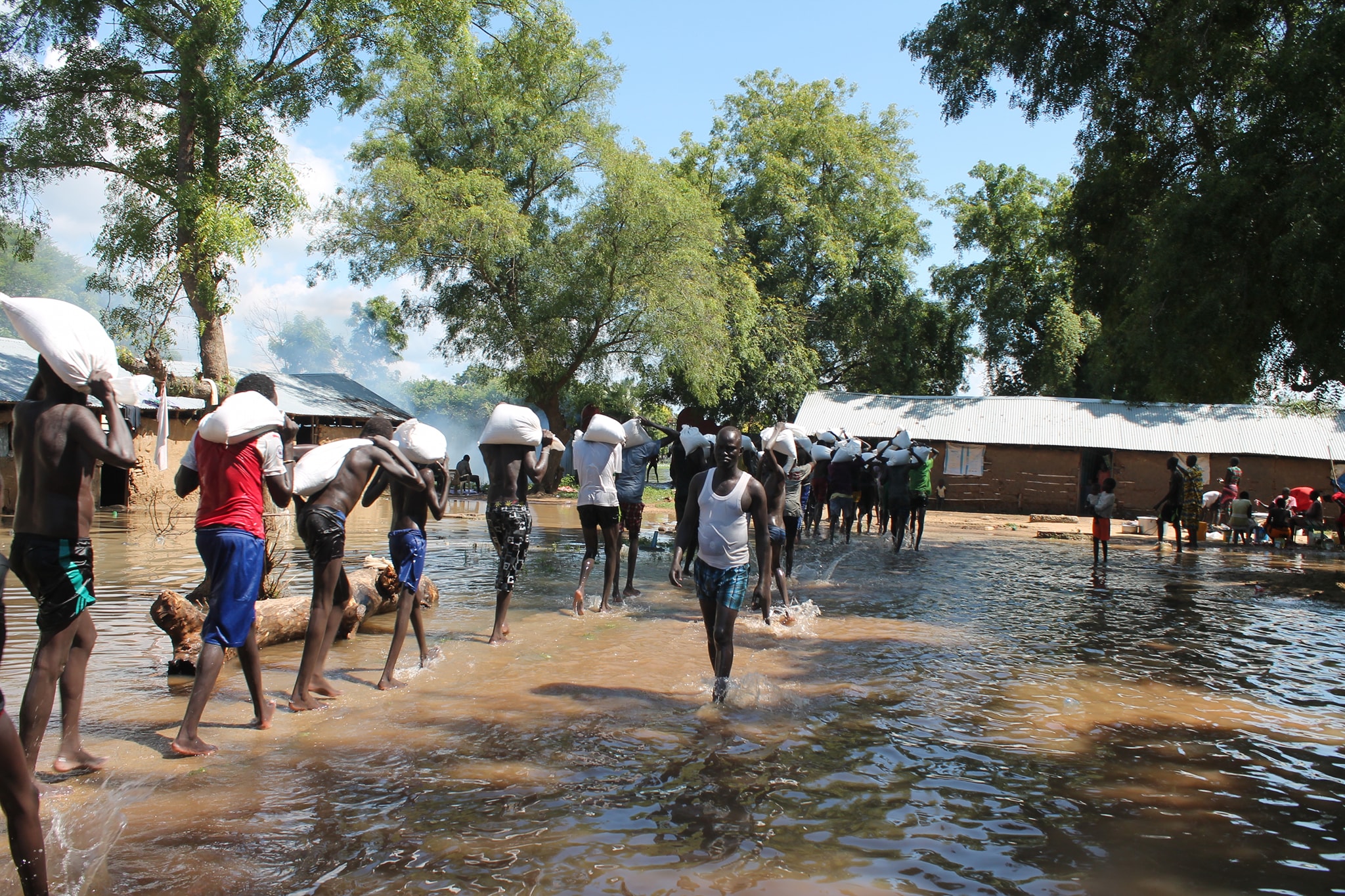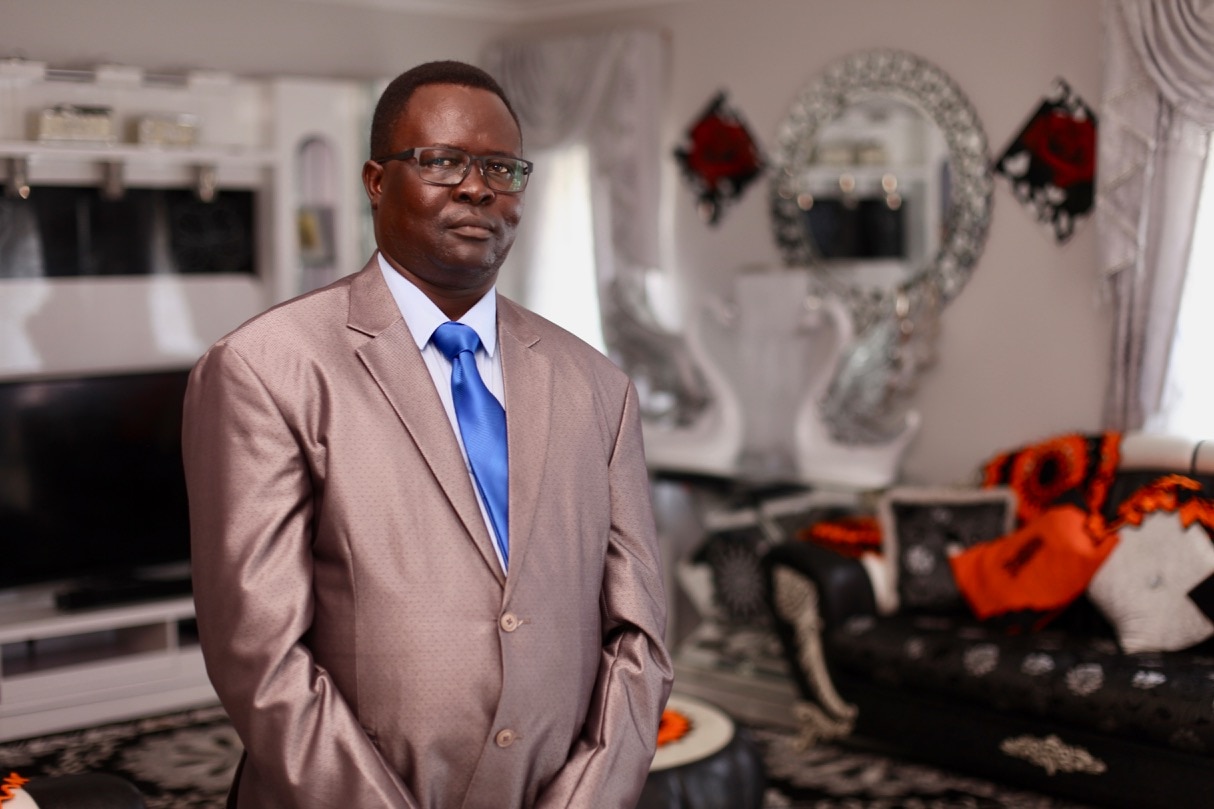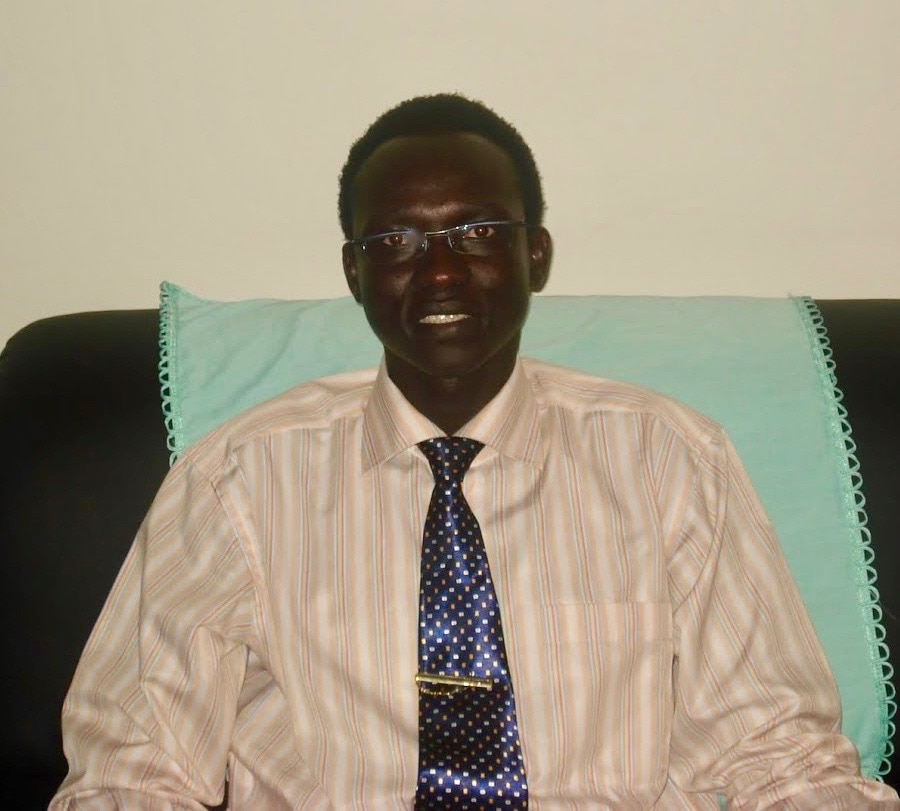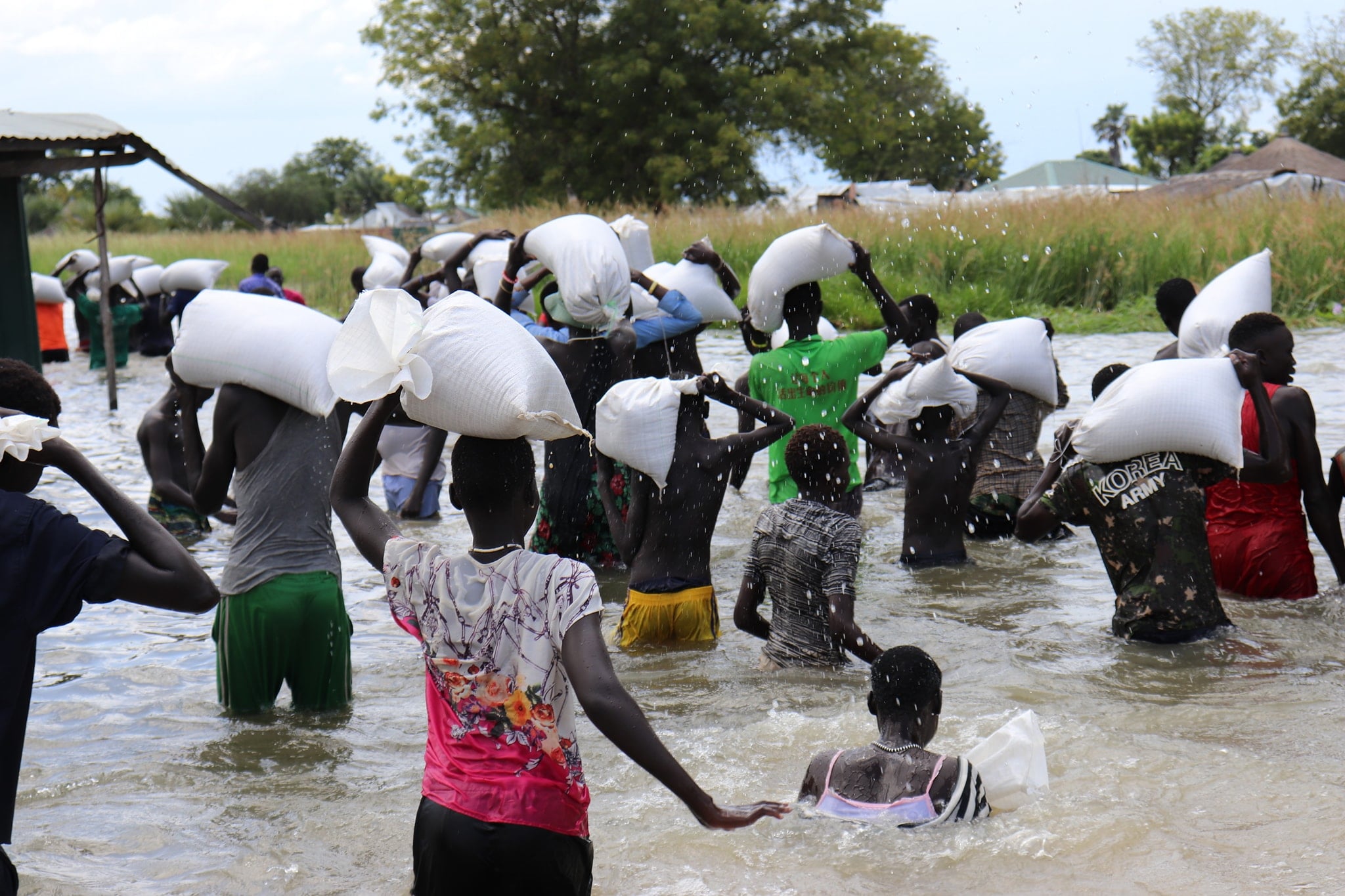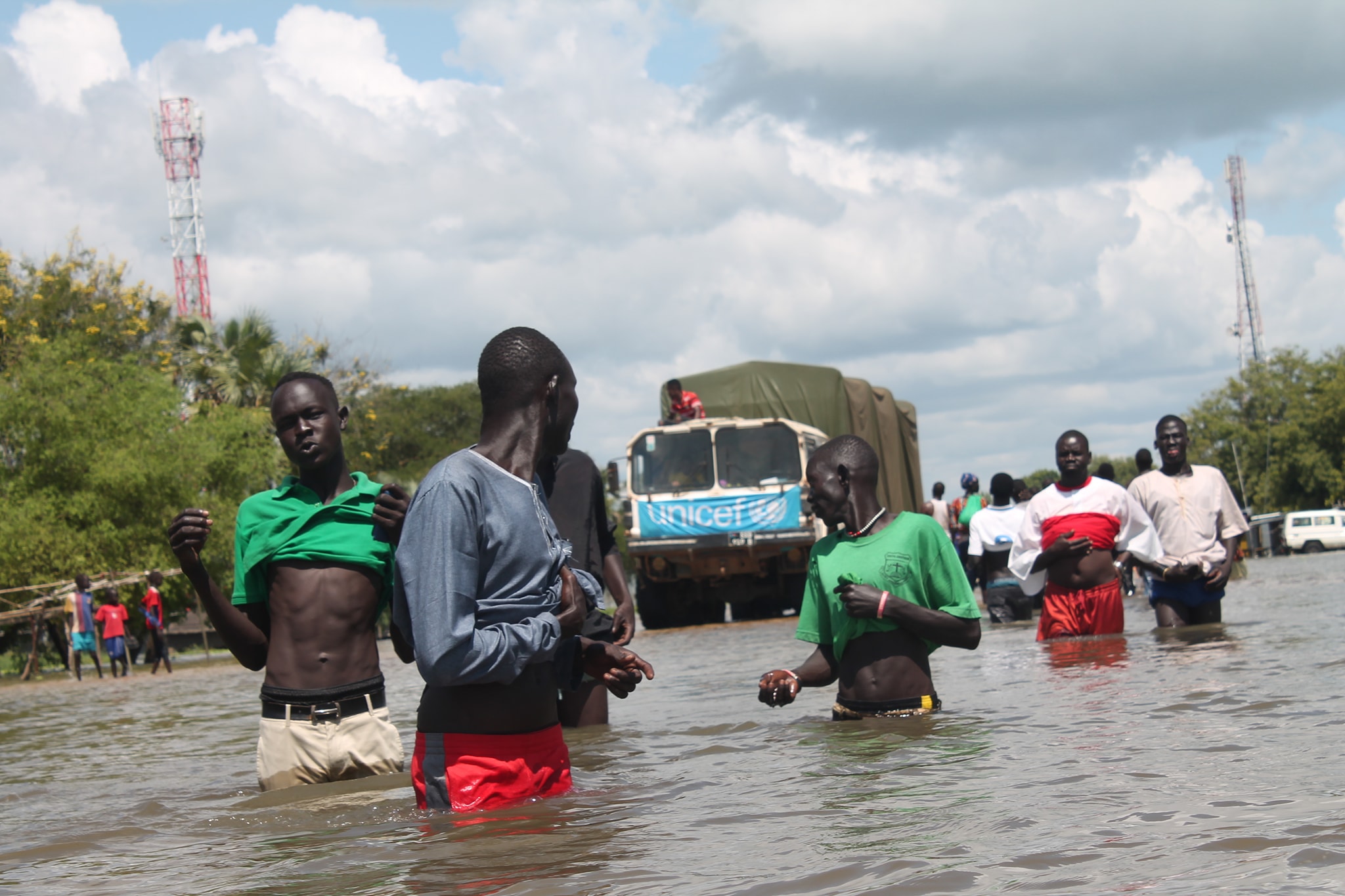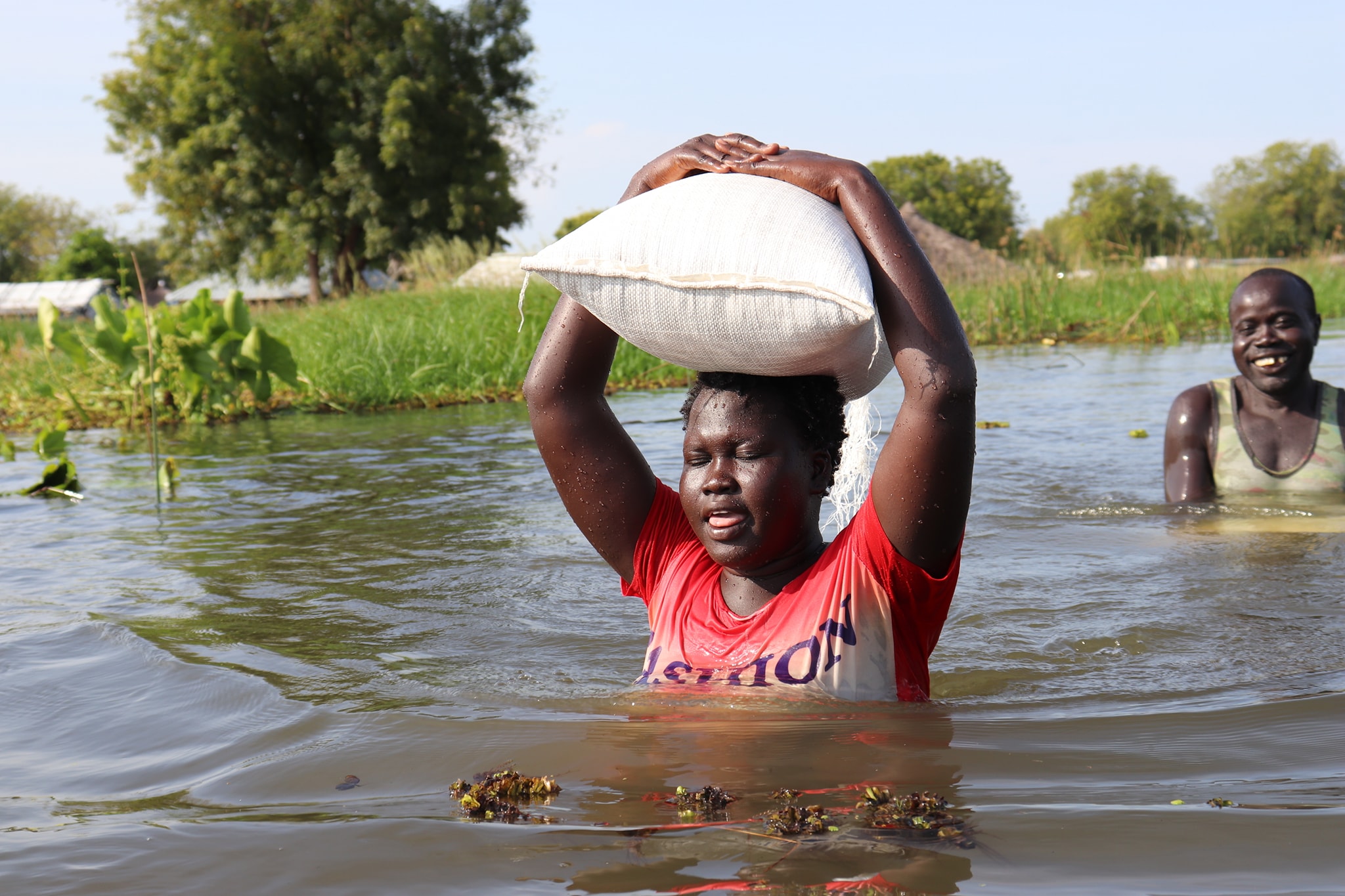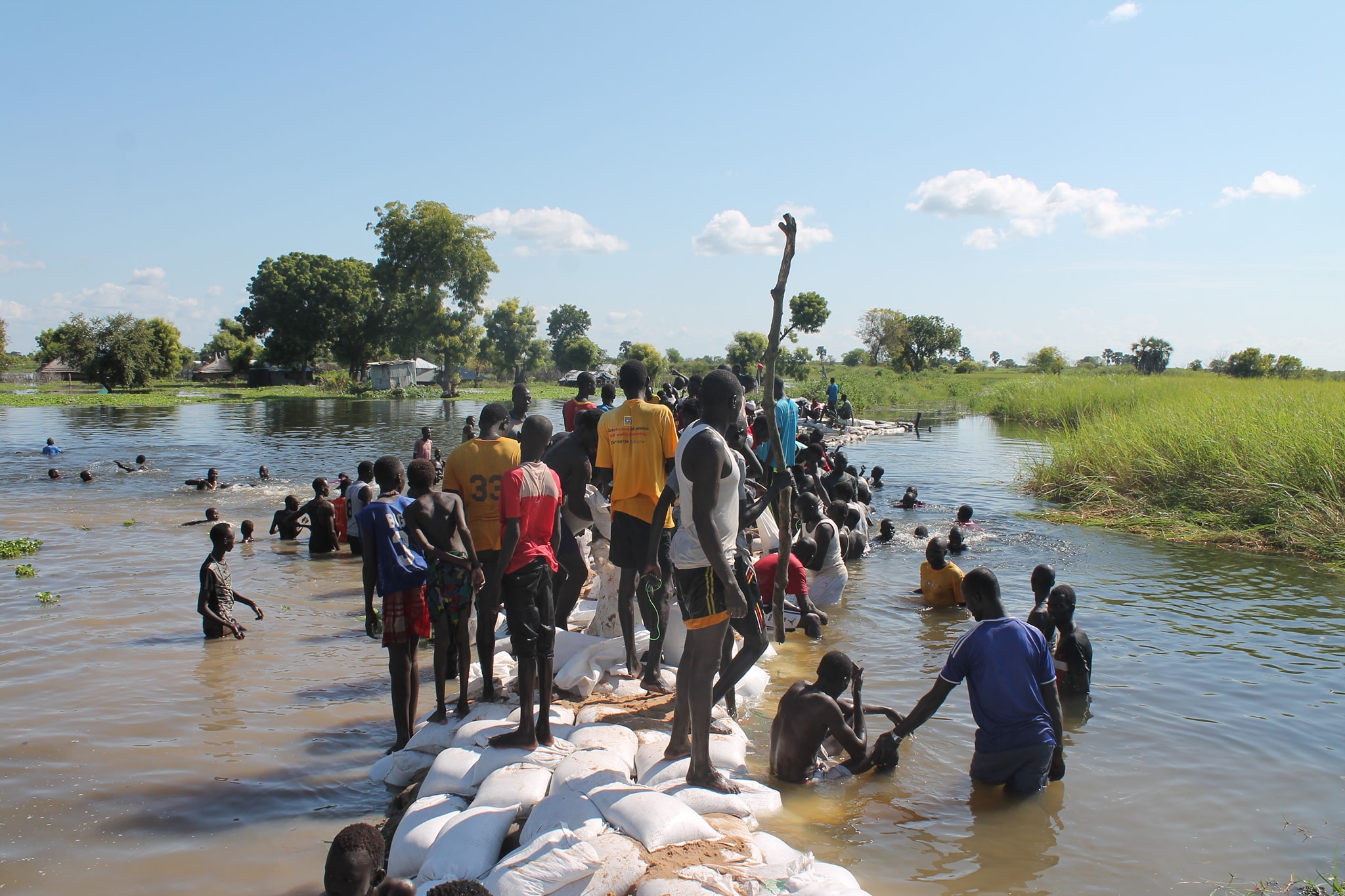When Isaiah Akuot Abdalla Ajak finishes work in Western Australia, he rushes home to speak with his family in South Sudan.
Earlier this year, his cousin Jacob fled his village of Panyach in Jonglei State to reach higher ground, after the worst flooding in more than half a century hit the region.
“I talk to him every day. I sense the sadness in him, and despair,” says Mr Ajak, a 43-year-old mental health counsellor. “He is literally living, now, by the roadside, with the water around him.”
“[The people there] have no food to eat. They have no covers. They sleep in open places and when it rains, it rains on them. They have nothing at all.”
More than one million people in South Sudan have been impacted after floodwaters swept across the country this year, the United Nations Office for the Coordination of Humanitarian Affairs reported in November.
In July, heavy rain caused the Nile, Lake Victoria and other major rivers to reach unprecedented water levels and overflow. Sporadic flooding episodes have continued in the months since, submerging entire villages and separating larger cities into islands.
More than 100 people have died and the destruction of crops has worsened food shortages. Floodwaters have also carried disease and contaminated drinking water.
But in a year dominated by the COVID-19 pandemic, those impacted have struggled to get the attention of the outside world.
While the president of South Sudan, Salva Kiir Mayardit, has declared a state of emergency, both the national and state authorities have struggled to coordinate an effective response, overwhelmed by the enormity of the task at hand.
Many of the stories of those trying to survive are known only to them and their families around the world, including in Australia.
South Sudanese Australians and other diaspora communities have been providing emergency food items and tarpaulins to be used as temporary shelters, as well as covering transportation costs for families to get out of flood-affected areas.
Since July, tens of thousands of Australians dollars have been sent from individual and group contributions.
Mr Ajak, who speaks to SBS News from his home in Banksia Grove, has raised money through his own charity, Amani Orphans and Widows Welfare Service, to provide assistance directly to impacted villages. But, he says, it barely addresses the urgency of the situation.
“The major concern at the moment is food. They have no medicine. They’re still drinking the water that comes through the flood. There are waterborne diseases,” he says.
“We can send them money, but there are no items to buy.”
Videos from the worst affected areas, in Jonglei State and Upper Nile Province, show young people up to their necks in floodwaters, desperately trying to build dams with sandbags, while others navigate what used to be villages in small motorboats.
Large sections of Bor, the capital of Jonglei State and home to more than 300,000 people, are completely submerged.
“Animals have died, houses are inundated with water and people are basically removed from the places where water has taken over,” Melbourne man Nyok Gor says.
“A lot of South Sudanese Australians have taken that lead role to support family members, to provide them with food, help them with shelter and medical needs”.
Mr Gor is the spokesperson for the South Sudanese Australian Disaster and Relief Group, an organisation of South Sudanese community leaders from across Australia who have united to raise awareness of the crisis.
“This is a story that has not been covered. It’s been underreported as a result of coronavirus, but it’s also a significant disaster,” he says.
“Many South Sudanese Australians are affected by this situation. It is causing a lot of mental stress for many families while they’re trying to verify how this situation impacts their families.”
Mr Gor’s own relatives had to flee their home in Bor before moving again from their temporary shelter as the floodwater surged. His elderly sister was evacuated by plane to a hospital in Juba.
Save the Children estimates international aid has so far contributed less than 30 per cent of the US$82million needed to respond to the crisis.
“Almost the entire area along the river Nile has been affected. Smallscale businesses, on which the most vulnerable people depend, have been decimated, on top of COVID-19 and ongoing conflict,” Save the Children’s South Sudan country director Rama Hansraj says.
“It’s important for the entire world to take notice of how dire the situation is in South Sudan”.
The most urgent needs are food, emergency shelter, water, sanitation and hygiene.
An estimated 380 schools have been destroyed, while a third of those that remain are being used to shelter displaced people. Across South Sudan, more than two million children are estimated to be out of school.
“Most of the displaced people, 70 to 80 per cent, are women, children and elderly, who are currently in temporary accommodation or out on the road,” Ms Hansraj says. “Protection measures to stop abuse and abduction of children is a priority.”
In September, a representative of Prime Minister Scott Morrison wrote a letter in response to a request for assistance from the South Sudanese Australian Disaster and Relief Group.
The letter explained Australia’s contributions to the United Nations and the World Food Program and promised to “continue to monitor the situation closely” but it declined to offer any direct support to respond immediately to the unfolding flood crisis.
SBS News sent questions to the Australian Department of Foreign Affairs and Trade about whether the federal government had made any emergency funding available to South Sudan or provided assistance to South Sudanese Australians but did not receive a response.
A group of South Sudanese Australian women from across the country, known as ‘Adol’s Women’ after their clan group, raised around AU$15,000 to purchase food.
The food supplies were bought in the capital Juba and then transported via river over 160km to the village of Pane Pandiar. Villagers purchased 270 bags of flour, 60 cartoons of oil, 18 bags of sugar, two cows and other supplies.
Such efforts are what many South Sudanese Australians want to see supported by the federal government.
“We know Australia is currently focused on addressing the global pandemic, but we thought this is a humanitarian situation,” Mr Gor says.
“Just as they did with the bomb blast in Beirut, where the Australian government was able to raise funds to support people that were affected.”
Flooding poses an annual risk in South Sudan but only that in the early 20th century and during the 1960s compares to the devastation that is now being seen. The country was already struggling with the COVID-19 pandemic as well as internal fighting that has ravaged South Sudan since it gained independence in 2013.
Members of the diaspora in Australia say they will continue to campaign for aid.
“In my case, what I could afford to do with my family here was pull together, make some small contribution financially, especially to those vulnerable family members to cover the basic support that they need,” Nyok Gor says.
“That is the concern that most Australian South Sudanese have been worried about.”
Ajak Deng Chiengkou is a journalist and broadcaster with SBS Dinka

